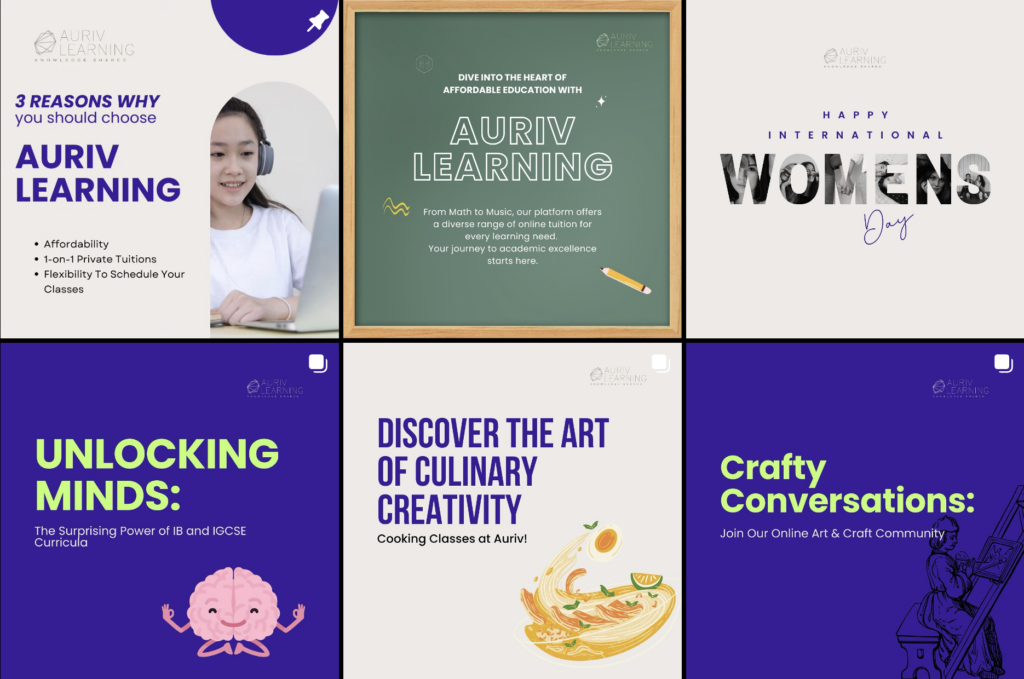Success is where preparation and opportunity meet. – Bobby Unser
Setting yourself up for your GCSEs is a marathon, not a sprint. It’s never too early or too late to create an effective revision strategy. Just envision unlocking your full potential—exam study techniques enable you to learn, enjoy the process, and revise efficiently. They help you make full use of your study time and nail those exams. But remember, even in a marathon, you must pace yourself and take breaks.
Here are some excellent revision tips for GCSE students. Read on to find out how you might turn those grueling revision sessions into a balanced approach to success!
How to revise effectively for GCSE
Given the many techniques, finding the right way to revise for GCSE can be overwhelming. It’s easy to become impatient or lack confidence about where to start. We’ve put together some tried-and-tested ways of making your revision process more accessible and effective, providing you with the support and guidance you need.
Draw Up a Revision Schedule/TimeTable
Before starting, a revision timetable must be made. This will lay down the time to study and work consistently up to the exams. Planning your study time can help you ensure that all the material gets the revision, especially in those subjects you could improve. This will be a strategic approach, reducing stress and increasing your retention power and grasp of the subject matter. First, write down all your subjects and topics you have to cover, then set up time slots for each. Make sure to include breaks in between and some leisure time to motivate you constantly.
Practice with Past Exam Papers
Without a doubt, past papers are the best ways to revise for your GCSE exams. Knowing what questions will look like and the paper format will give you confidence when approaching an examination. It isn’t about relearning facts but applying what you have learned.
Start putting aside time to work through past papers. Each time, think of it as a mock exam: find a quiet spot, set the timer, and get into it. This approach will help you get used to the test timing and allow you to identify the weak areas for later revision.
Review your answers carefully. Look at what you got right and where you went wrong. This reflection helps you learn from your mistakes and ensures you’re improving with each practice session.
Remember, the goal is to make the exam like another practice run. The more familiar you are with the format and types of questions, the more confident and prepared you will feel on exam day.

Use a Mind Map
Mind maps are actually powerful resources for linking ideas and memory. They will let you visually draw out subjects and themes for easy comprehension and memorization of highly complicated information. Take the main topic you wish to study and place it in the middle of the sheet. Then, mark the major points, subtopics, and details. Add colors, images, and symbols to your mind map to make it interesting.
This technique will allow one to structure ideas and provide an overview and interrelationship of concepts. Try displaying your mind maps in your study room for easy reference. They are helpful visual aids, particularly when one is revising for exams.
Mind maps are great because they help lessen the complexity of your revision process, making it more interactive and enjoyable.
Take Notes in Class
Organizing your class notes is a wonderful system that can help you do your revision effectively. First, set up a standard form of taking notes in each subject. Use headings, bullet points, and numbering to give your notes some semblance of form. Highlight the main concepts, terms, and definitions so that they will stand out.
Label and date your notes so that later, when you are to revise from these notes, it becomes easier to find them. This consistency will help make transferring your notes onto mind maps or flashcards much more accessible, increasing your revision efficiencies.
Well-organized class notes will help you easily understand the content and save much time during revision. You will revise quickly if your revision notes are well organized, making study sessions manageable.
Create Flashcards
Mindmaps can be converted into flashcards, which are really portable and easy to use. They feel perfect for quick reference and study sessions on the move. Of all the revision techniques, flashcards are ideal for memorizing vocabulary and key concepts with matching definitions, often in language-based subjects.
Take the flashcards and summarize essential information from your notes or mind maps. Try not to have more than one concept or question per card so that they are easy to review. Whether you choose digital flashcards or traditional handwritten ones, creating them reinforces your learning.
Use your flashcards regularly to test your knowledge. Mix them up to remember information out of sequence, then look over them again shortly after to keep the information fresh. Flash cards are flexible and valuable devices by which you can easily make your revision sessions more interactive and practical, which helps retain the information more effectively and boosts confidence for exams.

Form a Study Group
Teaching and quizzing others is an excellent way to learn better and remember. You can create a small study group, providing a study environment to tackle tricky concepts as a team and devise mnemonic devices to remember key ideas.
Studying in a study group can give one new perspective and insights about the material. This helps explain complex topics, which builds articulation and, therefore, the retention of information. A study group can also be a friendly atmosphere where members encourage one another.
Take breaks and Move Around
Effective revision need not involve relentless studying. To maximize your productivity, take breaks as a regular part of your study session. It is precisely these pauses that help you pause and breathe. You can focus better and process information with fewer surrounding distractions later.
Exercise is another short break you may want to take! Some simple walks down the block or any quick workout to refresh the mind significantly enhance concentration and memory, providing light on those tough topics one is working on. Moving around helps re-energize your body and mind for revisions with renewed vigor.
Aside from their physical benefits, these breaks provide an excellent window for good practices like rehydration or eating healthy snacks. Small steps are significant for overall well-being and enhancing the quality of your revision.
Creating intensive studying time with active breaks will provide a more balanced revision strategy that improves retention and leads to long-term academic success.

Takeaway
Mastering these revision techniques is the critical way to succeed in GCSE exams. By applying these seven epic techniques—task management, making groups for study sessions, taking breaks, etc—you can now turn your study session into a productive and efficient one.
Take James, for example, who needs more concentration and organizational skills. By breaking his revision into manageable bits, joining a study group, and taking frequent breaks to exercise, James was able to build his concentration and retention capacity. His grades improved substantially, which only goes on to prove compulsively the magic of structured and balanced revision.
As Albert Einstein wisely said, “It’s not that I’m so smart; it’s just that I stay with problems longer.” It helps to understand the importance of perseverance and effective study strategies. With dedication and the proper techniques, you can confidently approach your GCSE exams, knowing you’ve prepared thoroughly.
Work on developing your revision methods and maintaining your determination toward your later goals. You will get excellent results and set a foundation for your future!


 June 28, 2024
June 28, 2024  7 Min
7 Min  No Comment
No Comment 



